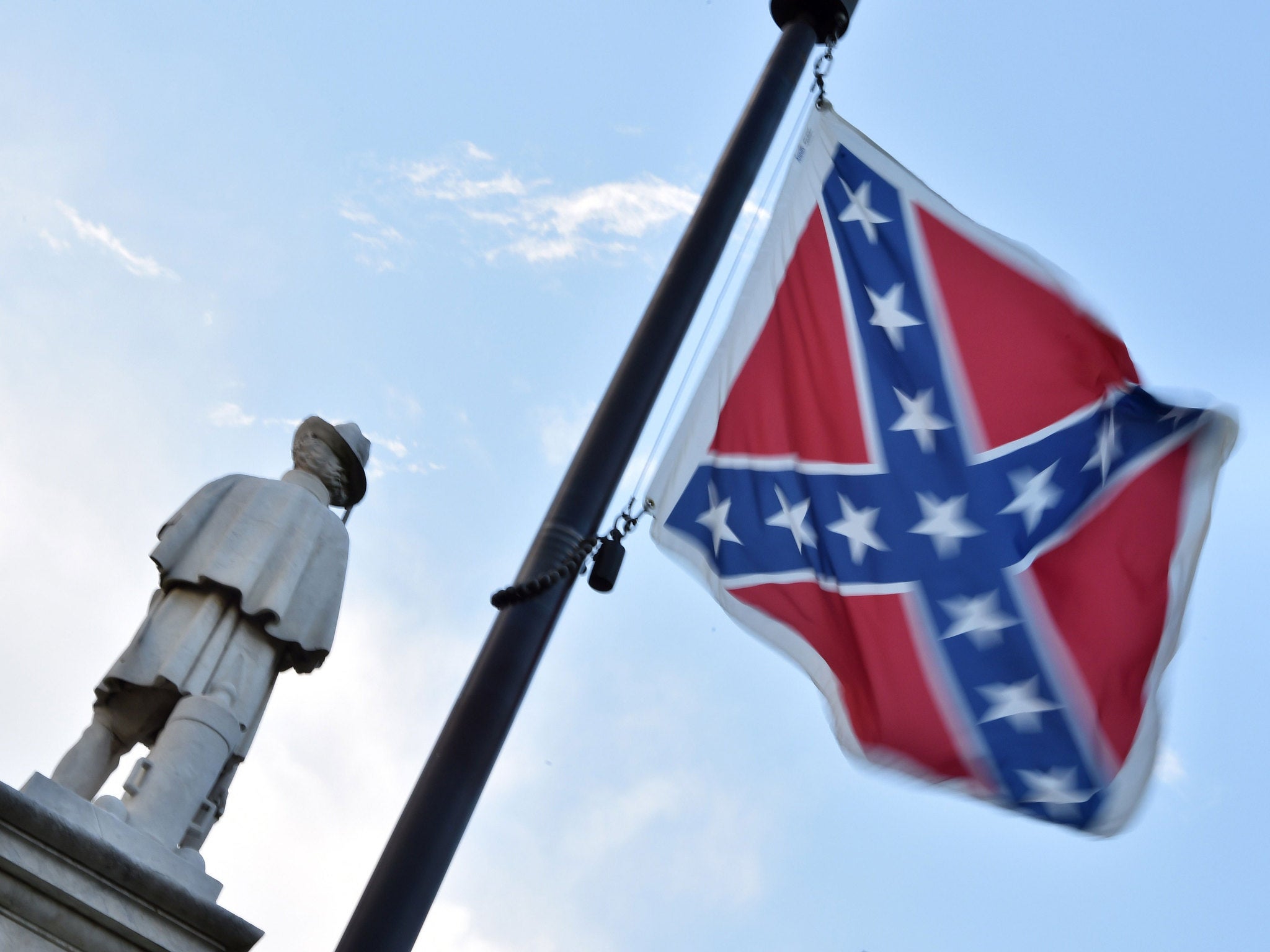Confederate flag fights for its life as demands grow for scrapping of banner after Charleston shooting

The Confederate flag is fighting for its life.
Across the US, the flag – held up by some as a motif of southern culture but derided by many others as a symbol of repugnant racism - faces a challenge is has not seen for years.
In the aftermath of the shooting dead of nine church members in Charleston and the revelation that the suspect, Dylann Roof, appears to be a white supremacist and a supporter of so-called neo-Confederate values.
On Tuesday morning, members of the state assembly in South Carolina approved a measure that allows them to consider removing the Confederate flag from the Statehouse grounds.
On Monday, South Carolina Governor Nikki Haley and Senator Lindsay Graham called for it to be removed and said that to many the flag was a “deeply offensive symbol of a brutally oppressive past”.
A politician in Mississippi also called for the portion of the flag that is included in the state banner to be removed, while the country’s biggest retailer, Wal-Mart, said it was removing from its stores and website any items that feature the symbol.
Meanwhile, Virginia Governor Terry McAuliffe called for the removal of the flag from state-issued licence plates and said he had set in motion the process to make that happen.
Robert Chase, a professor of history of Stony Brook College in New York, told The Independent that the banner – under which the troops of Robert E Lee fought – existed as both on the flags of various southern states, but also a powerful cultural symbol.
He said be believed a flag of the states, its days were numbered. However, he said its cultural symbolism would continue.
Mr Chase said the flag’s adoption by the southern states happened during the 1950s and 1960s as a direct response to the progress made by the civil rights movement. (South Carolina adopted the flag in 1962). He said those rally around the flag were trying to revive an old, outdated ideology.
“In Europe, the Nazi symbol is banned, but that does not mean there are not neo-Nazis,” he said.
In a statement, Wal-Mart Stores, which has its headquarters in Bentonville, Arkansas, said its goal is to not offend anyone with the products it offers.
“We have taken steps to remove all items promoting the Confederate flag from our assortment, whether in our stores or on our website,” the company said.
“We have a process in place to help lead us to the right decisions when it comes to the merchandise we sell. Still, at times, items make their way into our assortment improperly — this is one of those instances.”
Phillip Gunn, the white Republican speaker of the Mississippi, added his voice to the debate on Monday, saying it needed to be removed from the state flag. The state has had the Confederate symbol in the upper left corner since the end of the Civil War.
“We must always remember our past, but that does not mean we must let it define us,” Mr Gunn, a leader in his local Baptist church, said in a statement, according to the Associated Press. “
“As a Christian, I believe our state's flag has become a point of offence that needs to be removed. We need to begin having conversations about changing Mississippi's flag.”
Tennessee officials are also grappling with whether to retain Old South symbols.
At the Tennessee Capitol in Nashville, a bust of Nathan Bedford Forrest, a Confederate general and an early Ku Klux Klan leader, has sat in an alcove outside the Senate chamber for decades.
Democratic and Republican leaders are calling for the bust to be removed. Craig Fitzhugh, the state House Democratic leader, said it should go to the archives or a museum and be replaced in the Capitol by a statue of Lois DeBerry, an African-American who became the first female speaker pro tempore of the Tennessee House.
Subscribe to Independent Premium to bookmark this article
Want to bookmark your favourite articles and stories to read or reference later? Start your Independent Premium subscription today.

Join our commenting forum
Join thought-provoking conversations, follow other Independent readers and see their replies